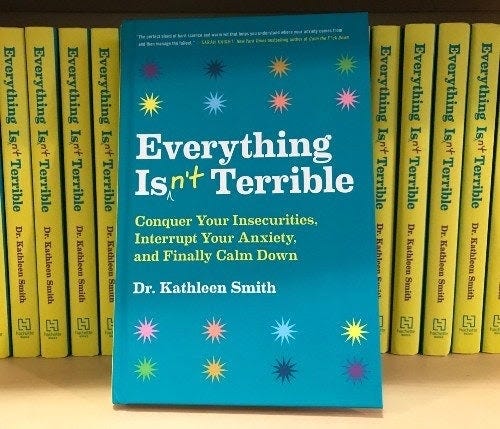How We End Up Fixating On Others' Immaturity
And what we lose when we're always in blame mode.
In anxious times, I get very focused on the immaturity of others. I study their behavioral patterns, quietly conducting a performance review on them. How are they not measuring up? What do they need to do to “fix” a problem? I have lots of ideas.
If I’m not careful, I might even complain to others about them. This can create a comfortable closeness, a triangle where I bond with others through our mutual frustration with another person’s “bad” behavior.
When we intensely focus on others, we don’t have to think about our own part. We feel calmer, because the blame isn’t on us. We think we’re helping the group function better, when we’ve really just found a convenient way to manage our own anxiety. This happens in families, friend groups, organizations, congregations, government, etc.
Being at “expert” at others’ immaturity could look like:
Being able to define your child’s challenges but not your own as a parent.
Gossiping with others about how your boss could be a more effective leader.
Thinking a lot about how your partner could make “healthier” choices.
Lecturing an aging parent about being more active or planning for the future.
Picking apart someone’s life choices, parenting style, or choice in a partner.
Focusing on how your friend could be a more responsive.
Focusing on how someone runs a meeting rather than how you want to participate in it.
Criticizing how your partner performs a chore.
Mulling over how your sibling could get their life together.
Thinking about how a colleague could be more engaging with clients or customers.
This intense focus on others put us at risk for:
Overfunctioning for others.
Reinforcing a person’s underfunctioning.
Not thinking about our part in the functioning of the system.
Losing energy we could use to work on ourselves.
Pushing our anxiety onto others rather than managing it ourselves.
Always needing a scapegoat to steady the ship.
A few weeks ago I talked about how focusing on others is a kind of check engine light, a sign we’re lacking good thinking about how to evaluate or direct ourselves. The same idea applies here. If you find yourself really focused on a leader’s incompetence, or your boyfriend’s lack of motivation, then that’s a useful marker for the level of anxiety in a system. It’s also a useful reminder to zoom out and think systems.
To ask questions like:
What’s going on, and how has this negative focus become a way of managing anxiety?
What’s my responsibility in this situation? What isn’t?
How do I want to respond to others’ immaturity?
I’m not saying that you never think about other people’s challenges. I’m simply suggesting the benefit of giving more thought to your own maturity gaps than the attention you give to the president, your parents, or your pastor.
Focusing on yourself does not relieve anxiety in quite the same way that an intense focus on others does. In fact, it’s likely to increase it. But being more responsible for self is the best gift you can give to a family or an organization. It creates a more flexible system, one that doesn’t need someone to blame when faced with a challenge.
News from Kathleen
The Kindle version of my book Everything Isn’t Terrible is temporarily on sale for $2.99. Gift a copy to a friend if you already have one.
Exciting news! I’m working on another book with the wonderful folks at St. Martin’s Essentials. Stayed tuned for more updates and pre-order info.
***Building a Person-to-Person Community of Faith - I’m leading a 3-part conversation series June 1st, 8th and 15th, with Healthy Congregations, an interfaith organization that helps leaders apply systems thinking to life and ministry. Check it out if you’re clergy, a lay leader, or someone who just wants to think systems.
Want to support my free newsletter? Buy me a coffee to keep the thoughts flowing or share it with a friend. Or leave a review of my book on Amazon.
Want to read more of my writing? Get my book, Everything Isn't Terrible, from Amazon, Barnes and Noble, Indiebound, or your local bookstore (best option).
Want a free anxiety journal with the book? Calming Down & Growing Up: A 30 Day Anxiety Journal includes thirty daily prompts to help you reflect on and respond to your anxious behaviors. To receive a copy, just email me your receipt of Everything Isn’t Terrible.
Email me if you’re interested in Bowen theory coaching or want me to speak to your group or workplace. Follow me on Twitter, Facebook, or Instagram.
Want to learn more about Bowen theory? Visit the Bowen Center’s website to learn more about their conferences and training programs.




Thank you, I really needed this!
Terrific and practical as always!